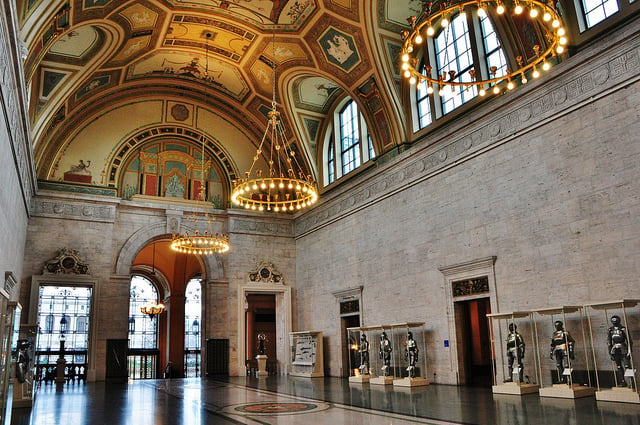
Automotive giants Chrysler Group LLC, General Motors Co., and Ford Motor Co. may be willing to shell out big bucks to help save the Detroit Institute of Arts (DIA) art collection from hungry creditors, reports the Detroit News.
The DIA is hoping the auto industry can help them in their efforts to raise $100 million as part of a proposed deal that would help relieve the city debt while keeping the museum intact. In exchange for adding some $816 million to Detroit’s woefully empty pension coffers, the DIA collection would be off the table for creditors hoping to sell the art for a quick infusion of cash.
Although the city’s creditors are in no hurry to accept the “Grand Bargain” laid out by city emergency manger Kevyn Orr (and some, such as the Washington Post, speculate that the plan may be illegal), the deal would include substantial funding from the state of Michigan, as well as a number of foundations and major corporations, possibly including Detroit automakers, who may foot the bill for the $100 million the DIA is charged with contributing.
Charitable foundations at GM and Ford are reportedly considering making long-term annual gifts (perhaps for as many as 20 years) of $10 million each. The less profitable Chrysler may offer a $5 million donation. Such acts would not be without precedent. The auto industry has supported the DIA for many years, donating to the museum’s annual fund and sponsoring exhibitions and events.
If Ford, GM, and Chrysler do help the DIA escape the creditor’s noose, it would be a fitting resolution to the conflict, as the automotive giants themselves were the beneficiaries of a controversial bailout following the 2008 financial crisis.
Meanwhile, the DIA is not content to wait for the proposed bargain to work itself out, and has urged Judge Steven Rhodes to block creditor requests to remove artwork from the museum for appraisal purposes, according to the Detroit Free Press.
Eager to monetize the valuable collection, which they believe is being undervalued, insurers have subpoenaed the entire collection, as well as all sorts of paper records (see artnet News report). In a court filing, the DIA argued that this “poses serious risks to the collection” and that the requested “files cannot be inspected and hastily copied without risking damage or destruction.”
Rhodes will conduct a hearing reviewing the creditors’ requests on Thursday.